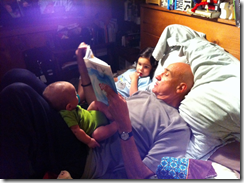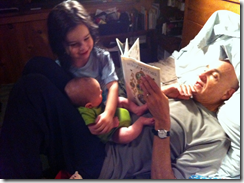No makeup, ladies. Please?
/On an objective, logical, and unbiased level, can we all please agree that it is twisted and bizarre that men spend every moment of their public lives without a spot of makeup on their faces while many, if not most, women are uncomfortable and unwilling to even leave the house without it?
This fact alone would seem to imply that men possess a natural beauty that women do not, which is obviously not the case.
As one of many men who prefer when women do not wear makeup, this has always annoyed me. I’ve always felt that women are much more beautiful absent any makeup and that confidence is infinitely more attractive than any amount of makeup that a woman could use.
And it’s not as if the makeup goes unnoticed to the untrained eye. We all know that your lips are not that red. We all know that your cheeks are not normally that pink. Your eyelids are not naturally dusky, and yes, we can all see the concealer that you are wearing, even though no one will ever tell you so. As masterfully as it may be applied, it’s no mystery when makeup has been applied, and we all know that it’s being used to cover or enhance something that the woman does not like about herself.
As the father of a little girl, this annoyance has now moved into the realm of genuine concern. I don’t want my daughter to ever feel like she needs to wear makeup, and I know how difficult a message this will be to send with so many women walking around the world painted and caked and smeared with the stuff.
But there’s hope.
First, my wife wears almost no makeup, and on the rare occasion when she uses it, she wears very little. If Clara ends up being anything like her mother, I will consider it a victory over the forces of makeup.
Even better, there is apparently a trend for female celebrities to post photographs of themselves without makeup.
From a recent New York Times piece on the subject:
Female stars have been rushing to publish photos of themselves without makeup. Last week, Rihanna, known for her brightly colored hair and makeup, posted a photo of herself on Twitter looking like the girl next door, makeup free and with braided pigtails. That followed a quadriptych of photos she posted several months ago, showing her looking as if she had just rolled out of bed, albeit with flawless and radiant skin.
The writer, Austin Considine, questions whether these photos are being posted as a publicity stunt, but I don’t care why they are being posted as long as the celebrities keep it up. They are promoting a positive message either way. I want more of this.
Objectively, we must realize that the only reason we think it strange or daring or unusual for a woman like Rihanna to post a photo of herself absent any makeup is because we have come to expect most women, and especially female celebrities, to be wearing makeup whenever they are in public.
But there is no innate reason for women to wear makeup. Women’s skin is not unnaturally flawed. Women’s lips are not unnaturally pale. Women’s eyelids were not meant to be blue or green or purple. There was no tragic eyelid transformation to a more fleshy color as a result of Hiroshima radiation or high fructose corn syrup.
We have come to expect women to wear makeup because women wear makeup.
Perhaps if more celebrities decided that it is somewhat sad and fairly insane for women to feel the need to spend the time and money painting their faces while their male counterparts are walking around without the same need or expectation, things could change.
I don’t know who the hell AnnaLynne McCord is, but I am her newest, biggest fan as a result of her recent decision to post a photo of herself without makeup and her comment on the subject:
In May, the actress AnnaLynne McCord posted an unvarnished photo of herself, her face dotted with red blemishes.
“I woke up this morning and decided I’m over Hollywood’s perfection requirement,” Ms. McCord wrote in a Twitter message accompanying the photo. “To all my girls (and boys) who have ever been embarrassed by their skin! I salute you! I’m not perfect — and that’s okay with me!”
I’m going to get this photograph and her tweet blown up into a poster, and when she’ old enough to read, I’m going to hang it in my daughter’s room. Right over her bed. I realize that I might be fighting a losing battle when it comes to makeup, but at least I’m fighting.









![image_thumb[2] image_thumb[2]](http://static1.squarespace.com/static/54f7c017e4b0ceb22a706c44/550da623e4b09507a08cefa4/550da6c5e4b09507a08d0ef8/1426958021346/image_thumb2_thumb1.png?format=original)


